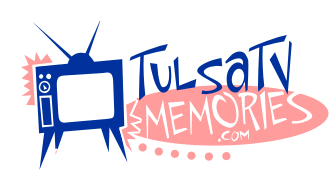
My memory tells me I began seeing movies when I was about five years old. That would've made it about 1942-43. (Yes, I'm that old.) War movies were really in vogue then. They had to be. World War Two was raging, and Hollywood was doing what it could to exploit the emotions we held for our loved ones overseas in Europe and the Pacific. The filmmaker's mission then was to sustain the war effort here at home and sell tickets. Motion pictures of the Forties well-inculcated in young minds the U.S. stand against the Axis: Germany and Japan. We felt no love for Japs or goose-stepping Gerrys. By 1949, "The Sands of Iwo Jima" had been released. Actors John Wayne, John Agar, Forrest Tucker and Richard Jaeckel were standing tall against the Japanese in that one. A non-actor who played himself in the film was a Pima Indian from Arizona named Ira Hamilton Hayes. He became well-known for being one of the Marines who raised an American flag atop Mount Suribachi on the island of Iwo Jima in February of 1945. The photo of the event is etched in the American psyche. Clint Eastwood's latest film, "Flags of Our Fathers" is another motion picture about this historic moment in the South Pacific and how it affected the lives of men in the photograph. Its release comes as the current Iraq War continues longer now than the duration of World War Two. Two screenwriters with impressive credentials have rendered a good script for Eastwood to direct. They are William Broyles, Jr., co-creator of TV's "China Beach", and Paul Haggis, writer of Oscar winners, "Crash" and "Million Dollar Baby" (both reviewed on this site by Chew). Adam Beach, to be seen in a TV series called, "Bury My Heart at Wounded Knee," plays Ira Hayes. Another "Crash" star, Ryan Phillippe, is John 'Doc' Bradley, and Jessie Bradford, the other principal Mount Suribachi flag raiser, is in the role of Rene Gagnon. Bradford was seen recently in "Happy Endings." These three young actors give good performances, but are really part of a large ensemble cast. One very strong moment of acting in "Flags" that should be noted is Beach's hotel room scene (as Hayes) when he chooses to go back to overseas combat instead of staying stateside, in safety, to help his two buddies---Bradley and Gagnon---promote the sale of U.S. War Bonds with their newly found hero status.
Broyles and Haggis have taken the book of the same name by James Bradley (actual son of John 'Doc' Bradley) with Ron Powers (formerly seen on The CBS Sunday Morning News w/ Charles Kuralt) and work the story into flash aheads and flash backs over several decades. At times, the principals are young fighting Marines, then there are moments when one of the characters, as a man of advanced age, is recalling moments of the flag-raising or some terrible sight he remembers in combat on Iwo Jima. It takes a couple of these time changes before the movie settles into its telling of the story. The battle scenes are on a grand scale. I kept thinking of Stephen Spielberg when the big wide vistas of Pacific Ocean are filled with U.S. ships and planes. Spielberg is a producer, along with Eastwood, for "Flags of Our Fathers." The effects are realistic and the location for the battle scenes looks real too: some of the dark sandy beaches of Iceland, obviously not shot in winter. Like some other recent war films, "Flags" is shot in color, but it's a faded color, giving the movie a bleak, almost black and white sensibility. The only moments in the picture when you're reminded of it being in color are when you see the red in our American flag or the blood of the dead and wounded. There's lots of both. Many period films are quite accurate in terms of costumes and technology but, unfortunately, have a sanitized look and feel to them. Not so with "Flags of Our Fathers." The uniforms look wrinkled, the combat gear really is dirty or muddy and the ships and planes make you think you might be watching an updated newsreel in the theater as was the only way people got their visual news during World War Two.
The beauty (a word to be used about massive hand-to-hand combat on a small Pacific island?) of "Flags" is that we're made aware of the awful existence these men endured in battle and see their heroism as well as their frailties. But never is there for them a moment of disrespect. And that may be the most cogent element of "Flags of Our Fathers." Then again, what might be even more cogent is: in seeing "Flags," youngsters, especially young men in high school or just into college or the workforce, can get a pretty good idea, with Clint Eastwood's intensity as a director, about how quickly Gung-Ho can change into Post-Traumatic Stress Disorder in an impressionable young soldier or Marine. Whichever seems more important to you as a moviegoer, please remember "Flags of Our Fathers" provides both. And that makes it a timely, worthy and honest film about war.
Check Yahoo Movies-Tulsa for showtimes. Gary Chew can be reached at garychew@comcast.net. Copyright © 2006, Gary Chew. All rights reserved. |